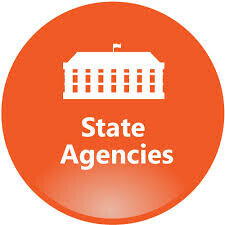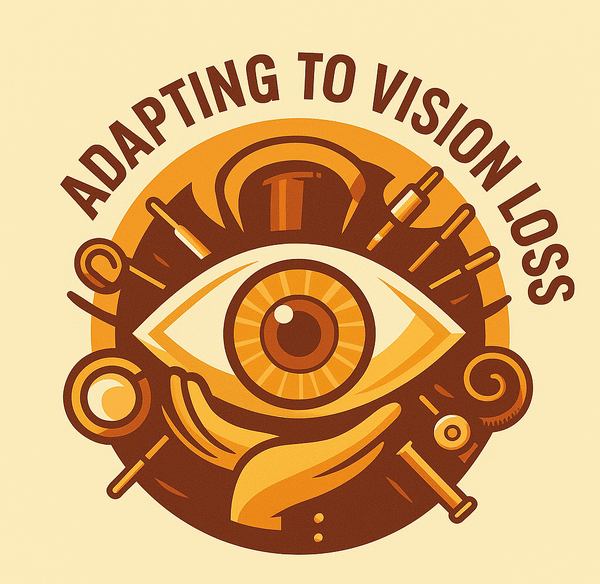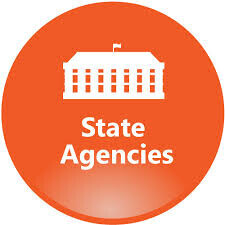
Navigating life with visual impairment can be challenging, but state agencies across the United States offer invaluable resources to help individuals achieve independence, access education, and build fulfilling careers. Understanding what these agencies provide can empower individuals and their families to take full advantage of available support systems. Here, we explore some of the top resources typically offered by state agencies for the blind and visually impaired.
1. Vocational Rehabilitation Services
State agencies often prioritize vocational rehabilitation (VR) services, aiming to help individuals secure meaningful employment. These programs provide:
- Career Counseling: Specialists help identify career goals and develop a tailored plan to achieve them.
- Job Training: Training programs teach essential skills, ranging from computer literacy to customer service and advanced technical skills.
- Workplace Support: Assistance includes job placement, resume building, and interview preparation, as well as workplace accommodations like assistive technologies.
The ultimate goal of VR services is to equip individuals with the tools and confidence they need to succeed in the workforce.
2. Independent Living Programs
For those who may not be pursuing employment, independent living programs provide essential resources to enhance daily life. These services may include:
- Orientation and Mobility Training: Learning to navigate environments safely using white canes or electronic travel aids.
- Daily Living Skills Training: Instruction on cooking, cleaning, and managing finances without relying on sight.
- Assistive Technology: Training on tools like screen readers, magnification devices, and wearable technologies to foster independence.
Independent living services focus on empowering individuals to manage their lives confidently and independently.
3. Educational Support
State agencies collaborate with schools, colleges, and universities to ensure visually impaired students receive the support they need to succeed academically. These resources often include:
- Individualized Education Programs (IEPs): Tailored learning plans for K-12 students, including accommodations like Braille textbooks or extra time on exams.
- Assistive Technology for Learning: Access to tools like screen readers, audio textbooks, and adaptive software.
- Transition Services: Programs that prepare students for the shift from school to higher education or the workforce.
Educational support ensures that students of all ages have the resources to achieve their academic goals.
4. Assistive Technology Services
One of the most transformative resources offered by state agencies is access to assistive technology. Services typically include:
- Technology Assessments: Evaluations to determine the most effective devices and software for an individual’s needs.
- Equipment Loans or Discounts: Many agencies provide free or low-cost access to tools like Braille displays, screen magnifiers, and speech-to-text devices.
- Training Programs: Hands-on training to ensure individuals can use assistive technologies effectively in their daily lives.
These services help bridge the gap between accessibility challenges and independence.
5. Support for Seniors
As vision loss is more common among older adults, many state agencies offer specialized services tailored to seniors. These include:
- Peer Support Groups: Connecting seniors with others facing similar challenges.
- Vision Rehabilitation Services: Training focused on adjusting to vision loss later in life.
- Low-Vision Clinics: Access to specialists who provide tools and strategies for maximizing remaining vision.
These programs aim to enhance quality of life and reduce feelings of isolation among visually impaired seniors.
6. Library and Information Services
Many state agencies partner with the National Library Service (NLS) to offer library services tailored to the visually impaired. These include:
- Braille and Audio Books: Access to thousands of titles in accessible formats.
- Accessible Devices: Distribution of e-readers and players compatible with Braille and audio books.
- Remote Access: Online platforms that allow users to download books directly.
For avid readers, these services open up a world of literature and learning.
7. Advocacy and Legal Assistance
Navigating accessibility laws and advocating for one’s rights can be daunting. State agencies provide resources such as:
- Legal Guidance: Assistance with understanding disability rights under laws like the Americans with Disabilities Act (ADA) and Section 504 of the Rehabilitation Act.
- Advocacy Training: Empowering individuals to self-advocate in educational, workplace, and public settings.
- Mediation Services: Resolving disputes related to accessibility or accommodations.
These services ensure that visually impaired individuals can fully exercise their rights.
8. Family Support Programs
State agencies recognize that visual impairment affects not just individuals but their families as well. Family support services may include:
- Counseling Services: Helping families navigate the emotional challenges of vision loss.
- Workshops and Training: Educating families on how to support visually impaired loved ones effectively.
- Resource Coordination: Connecting families with community resources and support networks.
Such programs foster a supportive environment that benefits everyone involved.
9. Youth Transition Programs
For young people transitioning to adulthood, state agencies offer programs designed to build confidence and life skills. These may include:
- Summer Camps and Workshops: Opportunities for socialization, skill-building, and leadership development.
- Mentorship Programs: Connecting youth with visually impaired professionals who can serve as role models.
- Pre-Employment Training: Focused on work readiness, financial literacy, and self-advocacy skills.
These initiatives help young people prepare for independent, successful futures.
10. Emergency Preparedness Resources
State agencies also help visually impaired individuals prepare for emergencies, ensuring safety and readiness. Services include:
- Personalized Emergency Plans: Creating plans tailored to specific needs.
- Accessible Alerts: Providing emergency notifications in formats like Braille, large print, or audio.
- Training and Drills: Teaching individuals how to respond effectively during emergencies.
These resources help reduce anxiety and ensure preparedness in crisis situations.
How to Access These Resources
Accessing state agency resources is often as simple as reaching out to your local agency for the blind or visually impaired. Here are a few steps to get started:
- Locate Your State Agency: Use online directories or visit the website of the National Federation of the Blind or the American Council of the Blind.
- Schedule an Assessment: Most agencies begin with an assessment to determine eligibility and identify specific needs.
- Explore Available Services: Work with agency representatives to create a personalized plan that incorporates the resources most beneficial to you.
State agencies are invaluable partners in helping individuals with visual impairments lead fulfilling, independent lives. By tapping into these resources, you can take significant steps toward achieving your personal, educational, and professional goals.

